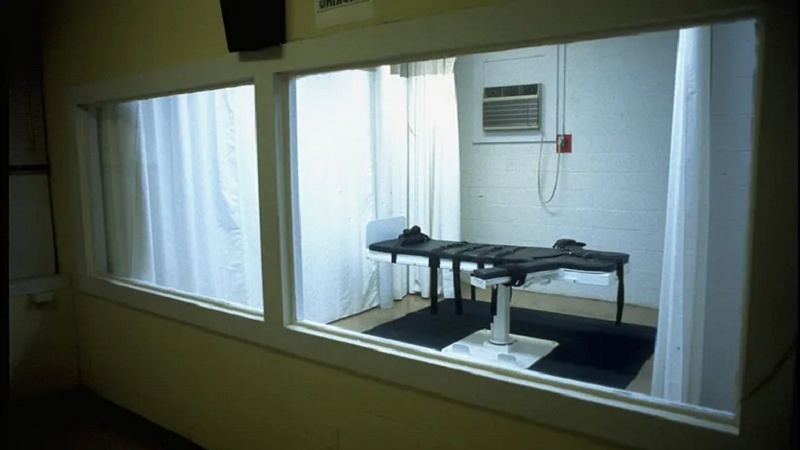Alabama set to resume lethal injections despite botched executions
The US state of Alabama is set to resume executions by the use of lethal injection for the first time since the state blocked the practice due to unprecedented botched executions last year.
Authorities will put to death James Barber, 54, by lethal injection by 6 a.m. on Friday.
Barber was convicted in 2003 of beating 75-year-old Dorothy Epps to death with a hammer during a 2001 robbery.
Alabama Governor Kay Ivey issued a temporary moratorium on lethal injection last year, after two executions were called off because of difficulties inserting IVs.
Advocacy groups said a third execution was carried out after a three-hour delay because of IV problems. Authorities, however, dispute the claim.
Lawyers for Barber, who this week filed a last-ditch federal appeal, have cited the botched Alabama executions in arguing his killing would violate the eighth amendment to the US constitution, which forbids cruel and unusual punishment.
A divided panel from the 11th US Circuit Court of Appeals ruled that Barber's execution could proceed.
The judges said the state conducted a review of execution procedures and his assertion that the “same pattern would continue to occur” was “purely speculative.”
Emily Marks, a US district judge, however, defied Barber’s attorneys earlier this month, arguing that the state had made three “meaningful changes” to its lethal injections process.
Maya Foa, joint executive director of Reprieve, a human rights non-profit, however, told the Guardian, "This could be one in what has been a string of disastrously botched lethal injection executions in Alabama."
"What we have seen time and time again in Alabama but also across the US is prisoners repeatedly put through torturous procedures as the state seeks to end their lives," he said.
He said, "Lethal injection is designed to look like a clean, medical process. But lethal injection executions go wrong all the time. In Alabama, these have been demonstrably, miserably botched executions."
And anti-death penalty campaigners have targeted the supply of lethal injection drugs, forcing states to seek new sources.
Lethal injection was carried out for the first time in 1982 and became the dominant method in carrying out execution in the US.
According to the non-profit Death Penalty Information Center (DPIC), 1,370 people have been executed via lethal injection, representing 88 percent of all executions since 1976.
SS



